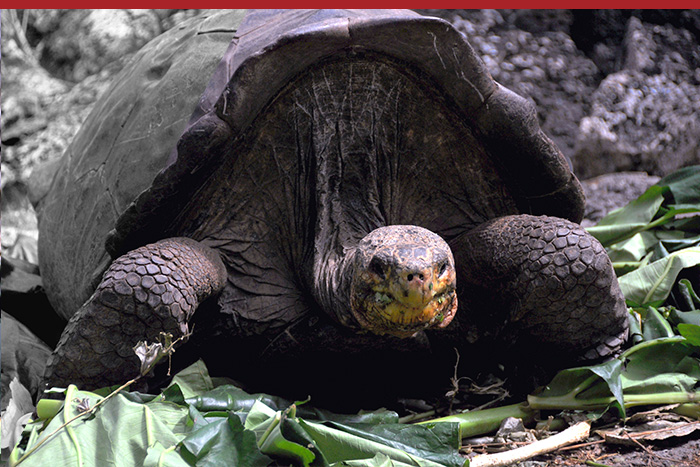What is grit and why is it important?
In the last few years there has been a buzz, particularly in education circles, but increasingly in the leadership and management space about that personal quality or character trait that is sometimes called grit. It is emerging as being critical to performance and research has shown that it more important than sheer talent or intelligence (in all its guises) in terms of predicting for success.
Angela Lee Duckworth of Pennsylvania University in her TED talk was one of those instrumental in shining a light on this trait. She left a successful career as a management consultant to become a classroom teacher, and struggled to understand what was it that made kids succeed in her maths classes.
Her definition of grit,
”Perseverance and passion for long term goals”
Margaret Perlis explored in depth the characteristics of grit. She says grit has
“… hundreds of correlates, with nuances and anomalies, and your level depends on the expression of their interaction at any given point. Sometimes it is stronger, sometimes weaker, but the constancy of your tenacity is based on the degree to which you can access, ignite, and control it.”
The salient characteristics that she identified include,
- Courage – whilst difficult to measure, is essential to overcome the fear of failure
- Conscientious – in the sense of being achievement-orientated rather than just dependable
- Long-terms goals and endurance
- Resilience – as made up of optimism, confidence and creativity – being able to ‘bounce back’ in the face of setbacks
- Excellence – “seeking, striving, finding and never yielding” rather than “perfection” that has overtones of being unforgiving, inflexible, and pedantic.
Duckworth says that in many ways the essence of true grit remains elusive but she and her colleagues list these following attributes as the building blocks of grit :
- A clear goal
- Determination despite others’ doubts
- Self-confidence about figuring it out
- Humility about knowing it doesn’t come easy
- Persistence despite fear
- Patience to handle the small obstacles that obscure the path
- A code of ethics to live by
- Flexibility in the face of roadblocks
- A capacity for human connection and collaboration
- A recognition that accepting help does not equate to weakness
- A focus and appreciation of each step in the journey
- An appreciation of other people’s grit
- A loyalty that never sacrifices connections along the way
- An inner strength to help propel you to your goal
These qualities make for good leaders and team players.
Can grit be developed or fostered?
Grit, it seems, is as much attitude, mindset and approach to life. So the question arises: are people born with grit or can grittiness be nurtured?
Duckworth’s research gives us some insights. She surveyed 190 students in the Scripps National Spelling Bee, as to what techniques were used by the best performers. The techniques fell into 3 major types,
- Reading widely for pleasure
- Being quizzed by others
- Deliberately studying / practice to build their skills on their own
Whilst the latter was the least enjoyable technique it was also the one used most extensively by the best performers. Specifically, they didn’t work on practicing the words they already knew. Instead, they focused on the words they didn’t know and spent time mastering how to spell them. She found that, “high achievers are not just persistent when faced with obstacles in their path, but are persistent in general when it comes to achieving a particular goal or task” .
Leaders and high performers in organizations can learn from this
How can you identify grit when recruiting?
In recent times, with 2 young graduates in the family, I have become familiar with the recruitment processes for graduate programs in government agencies and large organizations. A graduate position is a valuable opportunity for any fresh graduate, and highly sought after.
A graduate program provides an opportunity for structured experiences in several different work areas and structured on-going learning and development that complements academic / technical studies as people start their careers. Whilst on-going positions are not guaranteed as a result of being in such a program – the experience on its own is extremely valuable.
As the number of graduates has boomed and jobs are harder to find, graduate programs have become highly competitive. I don’t envy those institutions and organizations in selecting the relative few they can accommodate, compared to the thousand of applicants from across Australia.
The process from the graduate’s perspective is demanding and exhaustive, (written application which includes detailed responses covering experience relevant to key criteria, copies of academic transcripts, online abstract reasoning and cognitive skills tests, online and face-to-face interviews, assessment centre processes etc) but as a parent and management professional I have had cause to wonder at how on earth can they select when there are probably many very desirable and capable graduates applying who would be an enormous asset to any organization. In addition, given the scope and nature of the selection process are they really selecting those who would perform extremely well in such a program and go on to provide a pool of outstanding candidates for future work with the company or organization? In particular, how would such an organization assess the grit, as described in this paper?
Some questions that could provide insight, when incorporated into the other myriad of selection techniques could include,
“Tell me about something that you love doing, that is quite hard to master; what is it that you like about this activity, and how did you get into it?”
“Can you give me an example of some constructive feedback you received from your teacher, professor or employer? What was it and what did you do to address it?”
“Tell me about something you love to do and really care about and tell me why.”
But fostering grittiness in people doesn’t stop at recruitment. It requires on going attention to on-boarding processes, creating a healthy work environment, rewarding achievement and understanding what else people require to perform at their very best.







